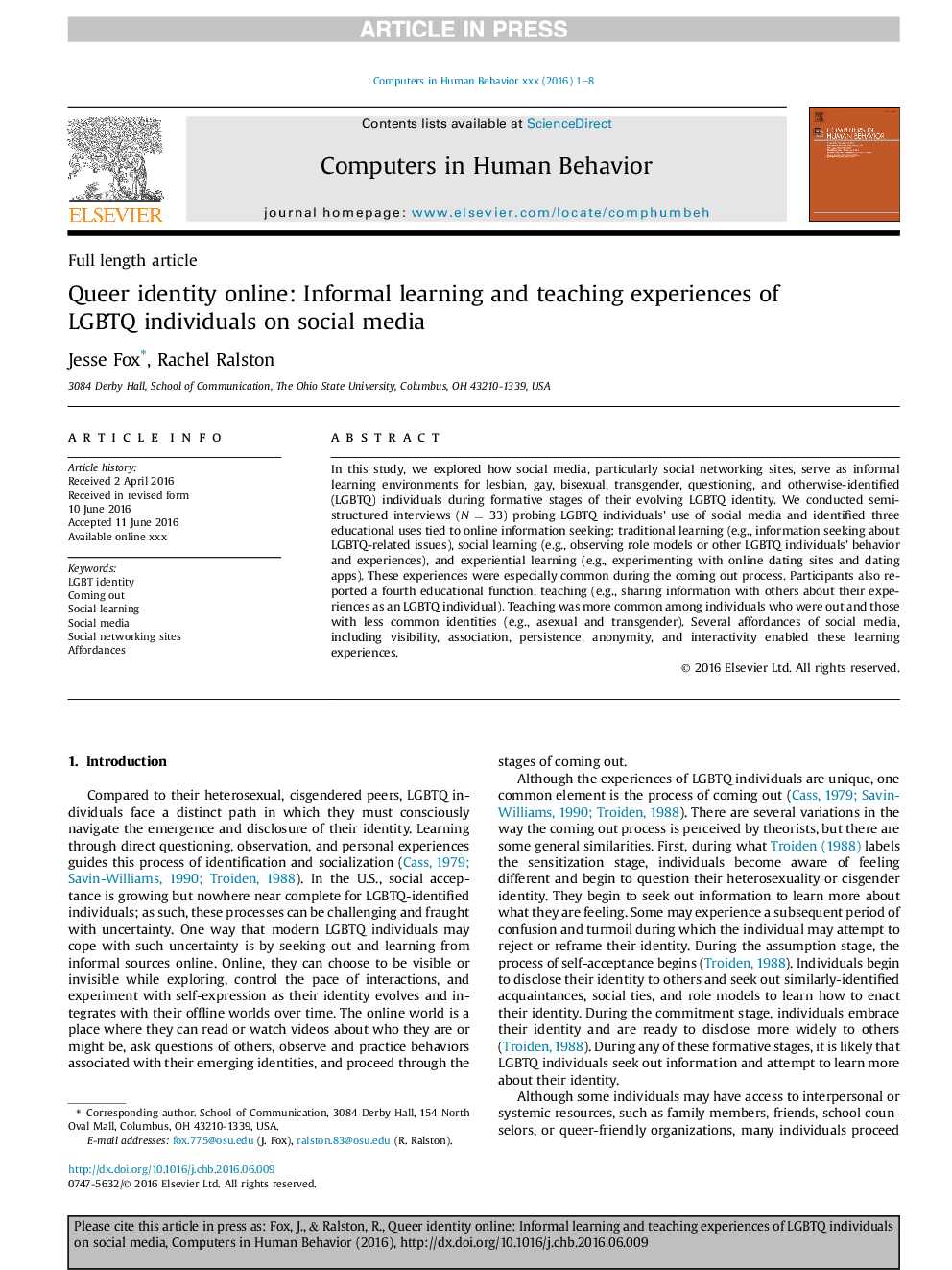| Article ID | Journal | Published Year | Pages | File Type |
|---|---|---|---|---|
| 4937832 | Computers in Human Behavior | 2016 | 8 Pages |
Abstract
In this study, we explored how social media, particularly social networking sites, serve as informal learning environments for lesbian, gay, bisexual, transgender, questioning, and otherwise-identified (LGBTQ) individuals during formative stages of their evolving LGBTQ identity. We conducted semi-structured interviews (NÂ =Â 33) probing LGBTQ individuals' use of social media and identified three educational uses tied to online information seeking: traditional learning (e.g., information seeking about LGBTQ-related issues), social learning (e.g., observing role models or other LGBTQ individuals' behavior and experiences), and experiential learning (e.g., experimenting with online dating sites and dating apps). These experiences were especially common during the coming out process. Participants also reported a fourth educational function, teaching (e.g., sharing information with others about their experiences as an LGBTQ individual). Teaching was more common among individuals who were out and those with less common identities (e.g., asexual and transgender). Several affordances of social media, including visibility, association, persistence, anonymity, and interactivity enabled these learning experiences.
Related Topics
Physical Sciences and Engineering
Computer Science
Computer Science Applications
Authors
Jesse Fox, Rachel Ralston,
